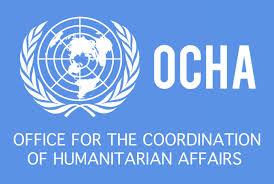At least five million Nigerians in the BAY States (Borno, Adamawa and Yobe) got humanitarian assistance from the United Nations organs in each of the last 10 years, according to the UNOCHA.
The Head of OCHA Nigeria, Mr Trond Jensen, who disclosed this at a press conference to mark the UN’s 78th anniversary, however, said more needed to be done to resolve the crisis in the North East.
He said stakeholders must go beyond humanitarian assistance and invest more in the development of the North East to resolve the humanitarian crisis in the region.
While noting that the humanitarian situation in the BAY states was getting worse, Jensen said 300 million were currently in need of humanitarian assistance compared to 81 million in 2014.
- NIGERIA DAILY: ‘Charging Phones Is Becoming Difficult In Parts Of The North’
- Tinubu appoints four ministers from Ogun
On her part, UNDP Resident Representative in Nigeria, Elsie Attafuah, said the organisation was taking a different approach in addressing the issues in the North West.
She also said the UN is collaborating with universities in Nigeria to support innovation among the youths in the country.
Mohamed Fall, the Resident Coordinator of the UN in Nigeria, said the organisation’s activities cut across the country, adding that more interest was being given to the North West as a result of banditry and farmers/herders crisis.
“I think our engagement is also based on what we have done in the North East and I just want to remind you of a few principles. The first one is that we are not going to engage in the North West by dropping the North East because we see increasing demand.
“In the North East, we are engaging development solution, and we are engaging into medium and longer-term development.
“In the North West, the operation will be led by the government. It will not be something that the UN will lead but UN will be behind the government,” he said.
Fall added that the UN is currently looking at localisation of humanitarian assistance because of dwindling funding.
“We have extensively used international partners, but now there is a conversation growing in the humanitarian world and in the developing world, which is around localisation, because that’s the way you make sure that when the operation finishes, you leave something there, and you leave capacity there.
“Localisation, because it’s more efficient and less costly in terms of business model, is the way that you make sure that you are coming in assistance, that it’s people to really have to own their own response, to have their own development process,” he said.

 Join Daily Trust WhatsApp Community For Quick Access To News and Happenings Around You.
Join Daily Trust WhatsApp Community For Quick Access To News and Happenings Around You.


